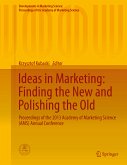In his study, Jan Posthumus uses the grounded theory method to explore the implementation of marketing instruments such as segmentation and targeting in the recruitment of high potentials in the pharmaceutical industry. The implementation of these instruments can best be understood as the result of an interaction between four categories: the identified internal need for certain groups of high potentials; the scarcity of these groups of high potentials in the market; the attitudes, opinions, and strategies within human resources; and the technological capabilities. Depending on the situation, different recruitment instruments are used to recruit high potentials. However, the interviewees did not use an explicit high potential recruitment profile, though they implicitly search for varying combinations of high-potential characteristics such as: intelligence and agility, engagement, the ability to perform in various environments, and the ability to manage one's energy levels.
Contents
- Management and Identification of High Potentials
- Marketing Concepts
- Marketing within Human Resources
- Market Research
- Contingency Theory
- Implications for Recruiters and Corporate HR
Target Groups
- Researchers, students, and practitioners in the fields of management, marketing, market research and human resources.
The Author
Dr. Jan Posthumus received his PhD from the International School of Management inParis. He is now a guest lecturer at the Baden-Wuerttemberg Cooperative State University Loerrach, Germany.
Dieser Download kann aus rechtlichen Gründen nur mit Rechnungsadresse in A, B, BG, CY, CZ, D, DK, EW, E, FIN, F, GR, HR, H, IRL, I, LT, L, LR, M, NL, PL, P, R, S, SLO, SK ausgeliefert werden.









